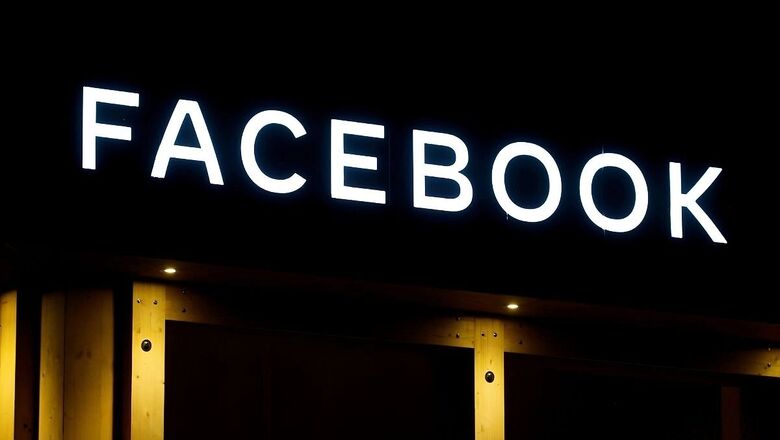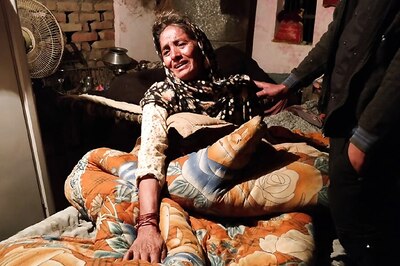
views
Facebook India executives on Tuesday skipped a summon issued by the Delhi Assembly’s panel for Peace and Harmony, over a Wall Street Journal report that alleged Facebook deliberately did not act on hateful content in the country. Facebook India’s vice president and managing director, Ajit Mohan, was issued summons to appear before the Delhi Assembly’s Peace and Harmony Panel today. Mohan was supposed to appear before the panel at 12PM on September 15, ‘as a witness for testifying under oath and for his assistance by providing the relevant information and explanations in order to smoothly expedite the veracity of allegations levelled against Facebook in the complaints and depositions made before the committee.’ Instead, the panel received a letter signed by Vikram Langeh, Director of Trust and Safety, Facebook where the latter objected to the notice and requested to recall the same.
In the letter, which was read out by the Delhi government’s panel Chairman, Raghav Chadha before the other panel members, Langeh contended that it was beyond the powers and purview of the panel to either discuss the issue, or even issue summons. Langeh said, “In view of the importance of the subject, the Parliament standing committee on Information and Technology is examining the issues raised in the notice as part of its enquiry into safeguarding citizen’s rights. We gave testimony before the parliamentary standing committee, we are enclosing the notice received from the Parliamentary standing committee for your reference. As you are well aware, the regulation of intermediaries like Facebook falls within the exclusive authority of the Union of India and in exercise of this power to regulate communication, the Parliament has enacted the IT act 2000. Further, the subject of law and order in the NCT of Delhi also falls under the exclusive domain of the Union of India. Given that the issues raised by the notice involves subject matter within the exclusive domain of the Union of India and that the are under active consideration by the parliament, we respectfully object to the notice and request you to recall it.”
All members of the Delhi Peace and Harmony Committee, who were present, took strong exception to the reply received from Facebook India, terming the letter as ‘contempt of the house’, ‘vague’, ‘breach of privilege’, and ‘evasive.’ Members urged the Chairman to send a “strong message to them to appear and the matter be referred to the privilege committee if they fail to appear and after speaking to the Speaker, a warrant must be issued against them”. One member alleged that Facebook was perhaps acting “on behalf of the central government”. On this matter, Chadha said, “the manner in which the notice has been treated and, refusal to appear before the committee amounts to contempt of the Delhi legislative assembly itself.”
Proceeding of Delhi Assembly’s Peace and Harmony committee against Facebook | Live https://t.co/pxOh9XEXco— AAP (@AamAadmiParty) September 15, 2020
Chadha also contested the positions taken by Facebook in its response. According to the body, there is nothing to suggest that if a matter is being discussed in any Parliamentary panel, the same cannot cannot be discussed by an Assembly panel, since the state legislature functions independent of the Parliament. Chadha also pointed out that the issues in front of both the panels are different – while the issue in front of the Parliamentary Panel of Information and Technology was “safeguarding citizen’s rights and preventing misuse of special online news media platforms including special emphasis on women’s security in digital space,” the Assembly committee was discussing Delhi riots and whether Facebook has any role in same. “Their first contention is untenable. Secondly, to say that communications, IT Act, Law and Order is the exclusive domain of the Centre is also completely erroneous,” Chadha said.
Chadha cited Entry 1 and Entry 2 of List 3 of the Seventh Schedule of the Constitution of India, the 2018 Supreme Court verdict in the State of NCT Delhi vs the Union of India, and section 18, sub section B of the GNCDT Act – which gives Delhi Legislative Assembly, its members and its panels privileges, power and immunity to argue that this privilege of the Vidhan Sabha had been breached and disregarded. “If this panel desires, it can compel your attendance, force you to appear before the panel, issue warrant and you have to appear. Your refusal to appear before this committee is an attempt to conceal crucial facts in relation to Facebook’s role in the Delhi 2020 communal riots violence. This shows that Facebook has something to hide. It reveals that Facebook is running away from the panel and the allegations levelled against it in context of Delhi riots are perhaps not baseless,” Chadha said.
Stating that this non-cooperation illustrates that Facebook India wants to hide its role in the Delhi riots, suppress evidences and conceal facts, the committee passed a resolution to give Facebook “one final opportunity” and a “final warning”, in keeping with the principles of natural justice to appear before the panel. Failing this, the committee would use its powers to take ‘coercive measures’ and ‘precipitative action’.
It must be recalled that the Peace and Harmony Committee, after summoning witnesses, hearing their depositions and cross-examining them had reached the conclusion that there were serious allegations against Facebook, particularly on how it was selective in its implication of community standards. Questions were raised regarding the role of Facebook, when communal riots shook Delhi earlier in February.
Wall Street Journal had last month claimed in a report that a senior policy executive at Facebook India intervened in internal communication to stop a permanent ban on a BJP lawmaker, after he allegedly shared communally-charged posts. According to the report, the executive, Ankhi Das, who also lobbies the Indian government on Facebook’s behalf, told staff members that punishing violations from the ruling party would hurt the company’s business in India.
















Comments
0 comment